The Psychological Therapy Landscape
In-Person vs. Online Therapy
When it comes to exploring different types of psychotherapy, understanding the differences between in-person and online therapy is essential to find the best fit for one’s needs.
In-Person Therapy involves face-to-face sessions in a physical setting, promoting a direct connection and allowing for the interpretation of nonverbal cues. Individual sessions typically last from 40-60 minutes and group sessions up to 90 minutes (Psychology.org). A major advantage of in-person therapy is the availability of a neutral, therapeutic environment away from the client’s daily life. This setting can enhance comfort levels when sharing personal and private information. In-person therapy is also crucial for certain therapeutic methods that require direct interaction, such as art, music, and play therapy.
Online Therapy offers a versatile alternative, connecting individuals to therapeutic support from anywhere at any time. This form of therapy has grown in popularity due to its accessibility, reduced stigma, and convenience (Psychology.org). Online sessions can vary in format, including video calls, texting, and emailing. For many, especially those with commuting difficulties or residents in rural areas, online therapy provides an accessible and convenient solution.
| Therapy Type | Session Duration | Setting | Advantages |
|---|---|---|---|
| In-Person | 40-60 mins (individual) / 90 mins (group) | Physical | Direct interaction, nonverbal cues, therapeutic environment, useful for certain methods |
| Online | Varies | Virtual | Accessibility, convenience, reduced stigma, multiple meeting methods |
Benefits of Online Therapy
The benefits of online therapy are numerous, making it a compelling option for many who seek mental health support.
- Increased Accessibility: Online therapy eliminates geographical barriers, enabling individuals to connect with therapists from various locations. This is especially beneficial for those living in remote or rural areas.
- Convenience: With online therapy, individuals can schedule sessions that fit their busy lives, reducing the need for travel. This makes it easier to maintain consistent therapy appointments.
- Affordability: Online therapy often costs less than traditional in-person sessions, making mental health support more available to a broader audience.
- Reduced Stigma: Virtual therapy sessions can be conducted privately, which helps reduce the stigma surrounding mental health treatment. This privacy encourages those who might avoid in-person therapy to seek help.
- Multiple Meeting Methods: Options such as texting, emailing, and video calls accommodate different communication preferences and needs. This flexibility is particularly useful for individuals uncomfortable with face-to-face conversations.
For more information on the advantages of online therapy, visit our article on the benefits of online counseling services for mental health.
| Benefit | Description |
|---|---|
| Increased Accessibility | Connect with therapists from various locations |
| Convenience | Schedule sessions that fit your life, no travel needed |
| Affordability | Typically lower costs compared to in-person therapy |
| Reduced Stigma | Conducted privately, encouraging more individuals to seek help |
| Multiple Meeting Methods | Texting, emailing, video calls, flexible communication options |
By weighing the pros and cons of both in-person and online therapy, individuals can choose the therapeutic approach that best fits their needs and circumstances. For further guidance on deciding the right therapy approach, read our article on how to choose the right mental health therapist.
Understanding Psychodynamic Therapy
When exploring different types of psychotherapy to see which one fits our needs best, it’s essential to dive into the nuances of psychodynamic therapy. Rooted in historical yet evolving practices, psychodynamic therapy offers profound insights into our psyche and emotional well-being.
Origins and Principles
Psychodynamic therapy traces its origins to Freud’s psychoanalytic therapy. Essentially, this therapy is grounded in the belief that the unconscious mind significantly shapes our behaviors and emotions. Unlike its early form, modern psychodynamic therapy employs updated techniques to make it more accessible and effective (Zencare).
Core principles of psychodynamic therapy include:
- Uncovering the Unconscious: The primary goal is to bring unconscious thoughts and feelings to the conscious mind.
- Connecting Past and Present: It helps link past experiences with present challenges to facilitate personal growth.
- Long-term Engagement: Usually, this therapy is long-term, focusing on unraveling complex emotional themes over an extended period.
Applications and Effectiveness
Psychodynamic therapy is particularly effective for those dealing with intricate emotional issues. It’s well-suited for individuals with personality disorders, chronic depression, and long-standing relationship problems. The therapy aims to dig deep into one’s past to untangle emotional knots and foster long-term emotional resilience.
A meta-analysis of over 160 studies showed significant improvements in emotional functioning from psychodynamic therapy, with these improvements continuing years post-treatment. Here’s a quick view of its effectiveness:
| Condition | Improvement Rate | Long-term Benefits |
|---|---|---|
| Personality Disorders | High | Sustained |
| Chronic Depression | Significant | Lasting |
| Relationship Problems | Dramatic | Persistent |
For those seeking a balanced approach, combining psychodynamic therapy with Cognitive Behavioral Therapy (CBT), which focuses on practical solutions to disruptive thought patterns, can provide comprehensive benefits. This integrated therapy offers a more holistic remedy by addressing both deep-seated emotional issues and present-moment thought patterns.
Explore further to determine if this therapeutic approach aligns with your needs. Consider reading more on understanding cognitive behavioral therapy (CBT) and even integrating it for diverse benefits.
For more information on different types of psychotherapy and how to choose the best fit for your needs, visit how to choose the right mental health therapist.
Exploring Cognitive Behavioral Therapy (CBT)
Cognitive Behavioral Therapy (CBT) has gained wide recognition for its practical and effective approach to addressing psychological issues. In this section, we explore the core concepts of CBT and its therapeutic effectiveness.
Core Concepts
CBT focuses on identifying and changing negative thought patterns and behaviors. It is structured, goal-oriented, and typically short-term, making it highly accessible. Each session usually centers around specific challenges and the progress made (Zencare).
Key Concepts in CBT:
- Cognitive Distortions: Identifying irrational or negative thought patterns.
- Behavioral Activation: Encouraging engagement in positive activities.
- Exposure Therapy: Gradual exposure to feared situations to reduce anxiety.
- Cognitive Restructuring: Challenging and changing harmful thoughts.
- Skills Training: Learning new coping and problem-solving skills.
CBT techniques are versatile and can be tailored to individual needs, making it effective for a variety of conditions.
Therapeutic Effectiveness
CBT is a highly effective treatment for numerous psychiatric issues. It is commonly used to treat anxiety disorders, depression, obsessive-compulsive disorder (OCD), and post-traumatic stress disorder (PTSD) (One Behavioral Health).
A summary table highlighting the effectiveness of CBT for different conditions:
| Condition | Effectiveness | Source |
|---|---|---|
| Anxiety Disorders | High | One Behavioral Health |
| Depression | High | Zencare |
| OCD | High | One Behavioral Health |
| PTSD | High | Zencare |
| Substance Use Disorders | Moderate | American Addiction Centers |
CBT’s structured approach allows for measurable progress, which can be particularly encouraging for clients. It offers tools to manage and reduce symptoms, leading to significant improvements in daily functioning. For more information on whether CBT might be right for you, visit our article on understanding cognitive behavioral therapy (cbt): is it right for you?.
For those interested in a variety of therapeutic approaches, Hope Wellness Center in Newport, RI offers a full spectrum of services, including Adult Psychiatric Services, Medication Management, Child & Adolescent Psychiatric Treatment, Mental Health Therapy, Substance Use Treatment, and Holistic Services. Visit our page on how to find the best therapist near you to learn more.
Explore further on our what to expect from marriage counseling sessions or the benefits of child and adolescent therapy for a complete view on mental health therapy options.
Diving Into Dialectical Behavior Therapy (DBT)
Purpose and Techniques
Dialectical Behavior Therapy (DBT) was initially developed to treat borderline personality disorder (BPD), but it has since been found effective for other issues like self-harm, eating disorders, and post-traumatic stress disorder (PTSD) (Mind). The primary purpose of DBT is to teach individuals skills to manage intense emotions, cope with difficult situations, and improve relationships.
DBT involves a combination of one-on-one therapy sessions and weekly group sessions where individuals learn and practice new skills. Key techniques in DBT include mindfulness, distress tolerance, emotion regulation, and interpersonal effectiveness. Mindfulness, for instance, encourages individuals to observe their thoughts and feelings without judgment, fostering a separation from negative emotions.
Here are some common DBT techniques:
- Mindfulness: Observing thoughts as separate from the self.
- Distress Tolerance: Developing skills to manage stress in healthy ways.
- Emotion Regulation: Identifying and altering negative emotional responses.
- Interpersonal Effectiveness: Improving communication and relationship skills.
Applicability and Results
DBT is highly versatile, and its applications extend beyond BPD. Many individuals find it effective for managing symptoms of depression, PTSD, eating disorders, and substance use disorders. The structured nature of DBT, which combines individual therapy with group skills training, allows for a comprehensive approach to mental health treatment (Harvard Health Publishing).
For those interested in other therapy options, exploring cognitive behavioral therapy or understanding different types of counseling services may be beneficial. If you are unsure which method is right for you, our guide on how to choose the right mental health therapist can provide further insights. Additionally, exploring the advantages of telehealth therapy services may offer convenient alternatives for those with limited access to in-person sessions.
Individual vs. Group Therapy
When approaching mental health treatment, we must consider whether individual or group therapy suits our needs. Each therapy type offers unique benefits, and the choice depends on personal preference, specific issues, and treatment goals. At the Hope Wellness Center, we provide both options to ensure comprehensive care for our clients.
Individual Therapy Benefits
Individual therapy involves a trained professional working one-on-one with an individual to help them navigate through their thoughts, emotions, and situations (American Addiction Centers). The private nature of this approach allows for a focused and personalized treatment plan, making it effective for addressing substance use disorders and other mental health issues.
Key Advantages:
- Personalized Attention: Sessions focus exclusively on the individual’s unique problems and goals.
- Confidential Environment: Offers a private space to discuss sensitive issues.
Individual therapy effectively treats various issues, including anxiety, depression, and substance use disorders. Therapists often use cognitive-behavioral therapy (CBT), motivational interviewing, and contingency management to help individuals recognize and alter negative patterns (American Addiction Centers). For more on CBT, explore understanding cognitive behavioral therapy (cbt): is it right for you?.
Advantages of Group Therapy
Group therapy involves treating multiple individuals simultaneously under the guidance of a therapist. This approach can be as effective as individual therapy, especially for conditions like substance use disorders and co-occurring mental health issues (American Addiction Centers). It fosters a supportive environment where participants can share their experiences and learn from others.
Key Advantages:
- Peer Support: Builds a sense of community and reduces feelings of isolation.
- Insight and Perspective: Participants gain diverse viewpoints and coping strategies.
Group therapy can assist in maintaining abstinence, provide insights, offer guidance, and teach new social skills. It suits those with depression, anxiety, and personality disorders. To delve deeper into the benefits, visit our article on the impact of group therapy on personal growth.
| Therapy Type | Personal Focus | Peer Support | Privacy | Cost Efficiency |
|---|---|---|---|---|
| Individual | High | Low | High | Lower |
| Group | Moderate | High | Low | Higher |
Choosing between individual and group therapy depends on your specific needs, comfort level, and treatment objectives. Sometimes, a combination of both therapies can offer the most comprehensive support.
At the Hope Wellness Center, we strive to match therapy approaches to your needs and consider factors such as cost and availability to ensure accessible and effective mental health care. For guidance on choosing the right approach, check out how to choose the right mental health therapist.
For further assistance, reach out to us to explore affordable mental health services that meet your requirements.
Choosing the Right Therapy Approach
Matching Therapy to Needs
When exploring different types of psychotherapy: which one fits your needs? it’s essential to consider the specific challenges you’re facing and how various therapies can address them. At The Hope Wellness Center in Newport, RI, we offer a range of services tailored to meet diverse needs, including Adult Psychiatric Services, Medication Management, Child & Adolescent Psychiatric Treatment, Mental Health Therapy, Substance Use Treatment, and Holistic Services.
- Psychodynamic Therapy: Best for individuals seeking to explore unconscious processes and past experiences that shape current behavior.
- Cognitive Behavioral Therapy (CBT): Effective for anxiety, depression, and other mental health issues where changing thought patterns can lead to better outcomes.
- Dialectical Behavior Therapy (DBT): Originally developed for borderline personality disorder but also useful for self-harm, eating disorders, and PTSD (An Overview of Dialectical Behavior Therapy (DBT) Techniques).
- Individual Therapy: Helps find the root of issues such as substance use and provides skills to navigate life without dependency.
- Group Therapy: Offers peer support, which can be especially beneficial in substance use treatment and personal growth (The Impact of Group Therapy on Personal Growth).
| Therapy Type | Best For |
|---|---|
| Psychodynamic | Unconscious processes, past experiences |
| CBT | Anxiety, depression, altering thought patterns |
| DBT | Borderline personality disorder, self-harm, eating disorders, PTSD |
| Individual Therapy | Substance use, personal issues |
| Group Therapy | Substance use, peer support, co-occurring mental health disorders |
Considering Cost and Availability
Cost and availability are crucial when choosing the right therapy approach. At The Hope Wellness Center, we strive to provide accessible and affordable services for all.
- Individual Therapy: Private sessions can be costly but are highly personalized. Insurance plans often cover these services. (How to Access Affordable Mental Health Services)
- Group Therapy: Typically more affordable than individual therapy and often covered by insurance. It provides a supportive community setting.
- Online Therapy: Increasingly popular for its convenience and often more cost-effective. It reduces travel time and offers flexibility (The Advantages of Telehealth Therapy Services).
| Therapy Type | Cost Considerations |
|---|---|
| Individual Therapy | Typically higher cost, insurance coverage varies |
| Group Therapy | More affordable, often covered by insurance |
| Online Therapy | Cost-effective, flexible, convenient |
For more detailed information on therapy costs and insurance coverage, check out our guide on how to access affordable mental health services.
By carefully matching therapy to your needs and considering the financial aspects, we at The Hope Wellness Center aim to make mental health support both effective and accessible. Whether you need individual sessions, group support, or a blend of various treatment modalities, our team is here to guide you through your mental health journey. For additional insights on finding the right therapist, visit how to find the best therapist near you.











